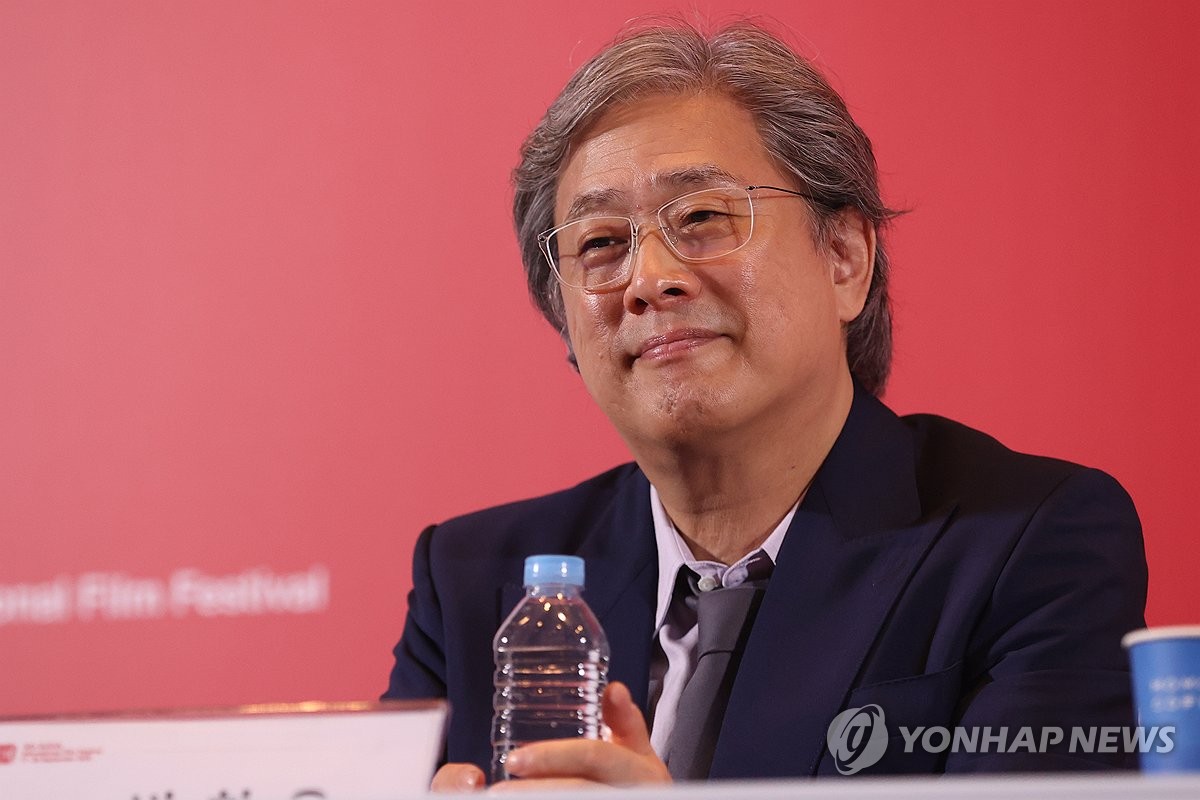'No Other Choice' explores timeless fears of job insecurity: Park Chan-wook

BUSAN, Sept. 17 (Yonhap) -- While the original book that inspired director Park Chan-wook's new film, "No Other Choice," is set in the United States in the 1990s, its underlying message will deeply resonate with people today, not to mention with him personally.
Speaking at a press conference for the film's Asia premiere at the Busan Cinema Center, venue of the 30th Busan International Film Festival, the South Korean auteur emphasized how the dark satire's key message about job insecurity is more relevant than ever.
"There is no fundamental difference between the U.S. and Korea when it comes to job security," Park said. "While some subjects need to be made into a film right away before the feeling and the message wither, this novel tells a story that people could embrace as their own, or their neighbor's, even as time passes."
Park's dark comedy is adapted from the 1997 mystery novel "The Ax" by American writer Donald E. Westlake. It centers on Man-soo (Lee Byung-hun), a middle-aged man who takes extreme, violent measures to eliminate his competitors for a new job after being abruptly fired from a paper company.
The film, which marks Park's first to open Asia's biggest film festival, also delves into the anxieties surrounding the advancement of artificial intelligence in the workplace.
"While the technology development promises fundamental change, it is not yet shaking our industry to its roots. But the speed of the development is difficult to gauge, leaving us in a state of chaos," he said, adding he tried to "weave these ideas into the narrative" until the final stages of production.
In adapting the American novel for a Korean context, the director said he focused on specific cultural elements, such as Man-soo's obsession with his home and the limitations and foolishness that arise from the remnants of a patriarchal system.
"I believe the Korean audience, more than any other, will understand and empathize, and will find themselves clicking their tongues in disapproval," he said.
The director also drew a parallel between the protagonist's plight and the current struggles of the local film industry with dwindling audiences and a lack of investment creating a vicious cycle of reduced film production.
As a filmmaker, Park said he could easily empathize with the frustration of Man-soo after losing his job.
"The job of making paper might not seem that important to some, but it is life itself to Man-soo. As a filmmaker, I feel the same way," he said. "A film might not be something that is of great help in life, but I am dedicating my life to it.
"The film industry is struggling in the aftermath of the pandemic, and the recovery has been slow," he added. "But I believe the situation will not last forever and I hope this film can play a small part in helping us get out of this swamp."
jaeyeon.woo@yna.co.kr
(END)





